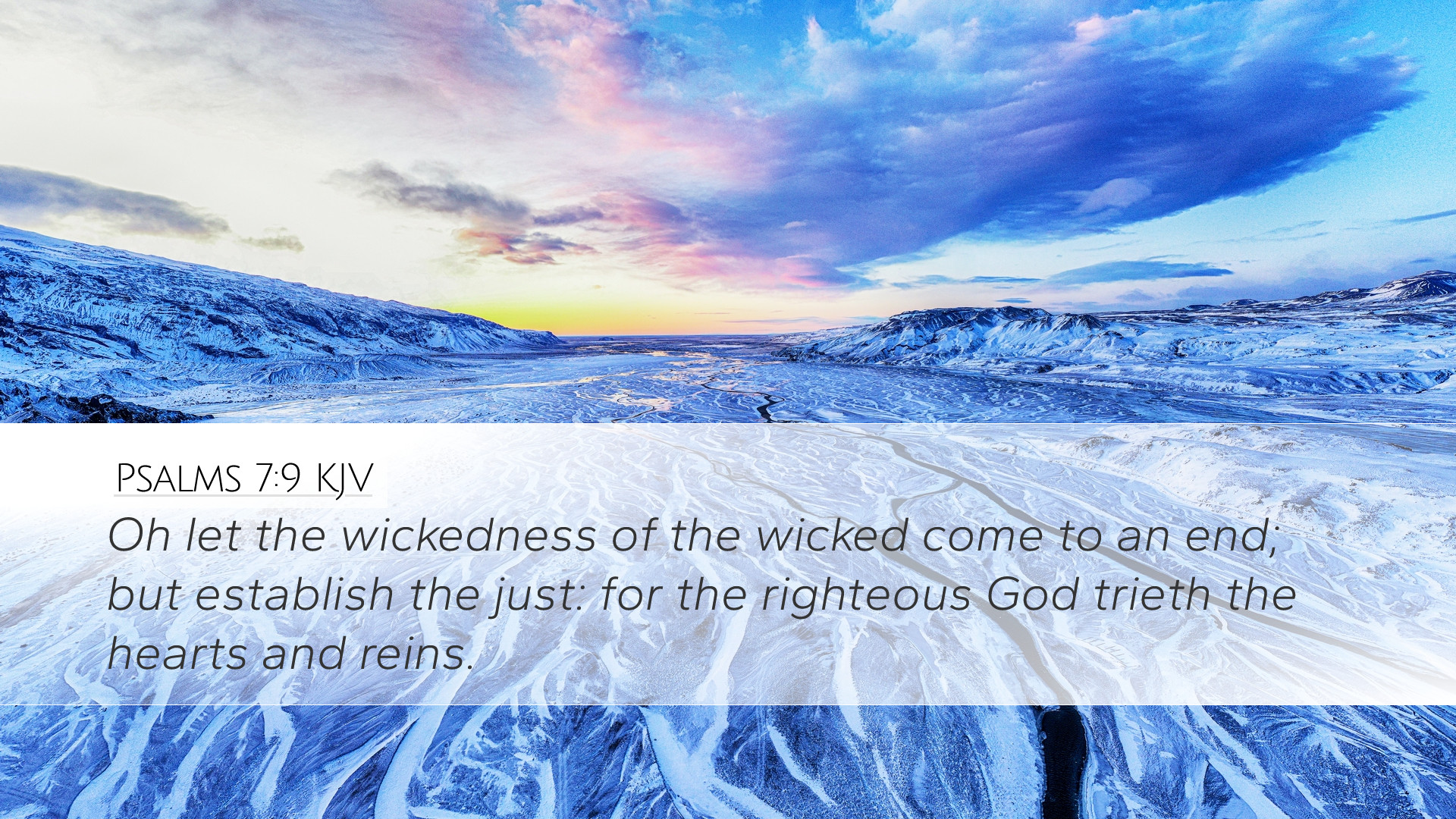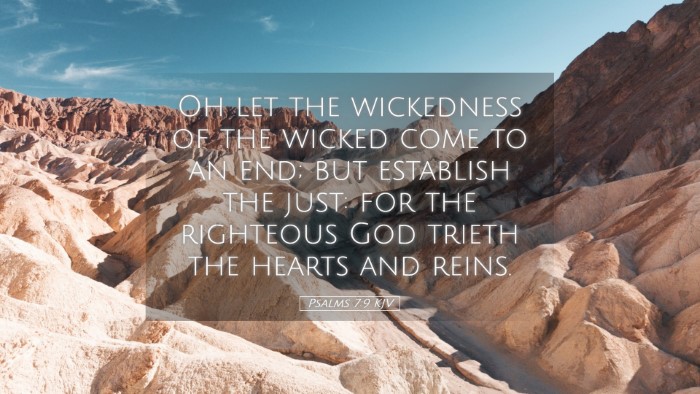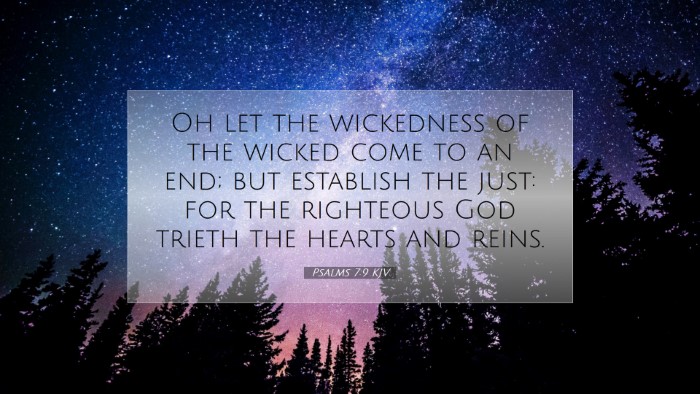Commentary on Psalms 7:9
Psalms 7:9 states, "Oh, let the wickedness of the wicked come to an end, but establish the just; for the righteous God trieth the hearts and reins." This verse encapsulates a profound appeal for divine justice and the assurance of God's righteousness, which resonates deeply in the hearts of believers seeking understanding and guidance.
Contextual Overview
The psalmist, likely David, expresses a plea for justice against those who perpetrate iniquity. The context of this psalm reflects a time of distress, possibly arising from slanders or false accusations. The yearning for divine intervention against wickedness is a recurrent theme, resonating with the fundamental biblical principle that God is a protector of the righteous.
The Concept of Divine Justice
This verse brings forth the dichotomy between the wicked and the just, emphasizing a core aspect of God’s character—His justice. Matthew Henry notes that the psalmist desires not merely the punishment of the wicked but rather the end of their wickedness, highlighting the transformative power of God's intervention.
- Divine Judgment: The psalmist acknowledges that it is God's prerogative to judge the hearts and minds of individuals. As Albert Barnes remarks, this reflects on the omniscient nature of God, who sees beyond outward appearances and delves into the motives and inner thoughts of humanity.
- Assurance for the Righteous: The phrase "establish the just" connotes a promise that God will uphold those who strive for righteousness. Adam Clarke summarizes this assurance, indicating that the righteous have a firm foundation in God's justice, providing comfort amidst their trials.
Theological Implications
The theological implications of Psalms 7:9 are significant for the understanding of God’s character. This verse invites deep reflection on God’s role as both a just judge and a compassionate redeemer.
- The Nature of God: The verse affirms that God is inherently righteous and just, a theme prevalent in both Old and New Testaments. It reassures believers that no act of wickedness escapes God's eye.
- Reflection on Humanity: The contrast drawn between the wicked and the just serves as a mirror for humanity, prompting self-examination concerning one’s actions and motivations before God.
- Hope and Restoration: The desire for the "wickedness of the wicked" to cease also carries a tone of hope—not merely for judgment, but for repentance and transformation of the heart, underscoring that God’s justice goes hand-in-hand with His mercy.
Practical Applications
For pastors, students, and theologians, this passage calls for several practical applications:
- Intercessory Prayer: Like the psalmist, individuals are encouraged to pray earnestly for justice, recognizing the importance of seeking God's intervention in world affairs, particularly concerning injustice and oppression.
- Encouragement to the Afflicted: The verse provides a foundation for pastoral care, offering reassurance to those who suffer under the weight of wickedness that God is attentive to their plight and will act on their behalf.
- Building a Just Community: This scripture can serve as a cornerstone for discussions on justice within faith communities, urging believers to advocate for righteousness and reflect God’s justice in their own lives.
Conclusion
Psalms 7:9 encapsulates a rich tapestry of hope, justice, and divine sovereignty. As believers reflect upon these words, they are invited into a deeper understanding of God’s character, the call to live justly, and the assurance that God’s righteous judgment will ultimately prevail. Through the lens of scripture and the insights offered by commentators like Matthew Henry, Albert Barnes, and Adam Clarke, the timeless truths of this verse resonate as a call to both justice and mercy in a world often fraught with wickedness.


